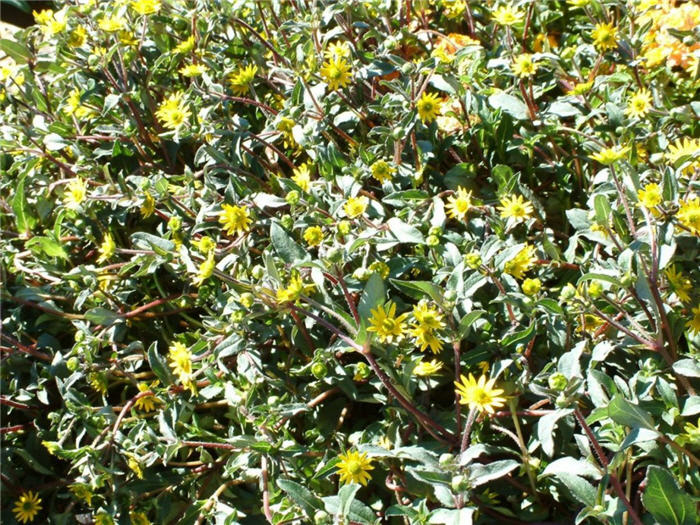| Botanical Name: Sanvitalia procumbens | |
| Common Name: Creeping Zinnia |

-
Anatomy
-
Culture
-
Design
Plant Type
Annual
Height Range
Under 1'
Flower Color
Gold, Orange, Yellow
Flower Season
Summer, Fall
Leaf Color
Green
Bark Color
n/a
Fruit Color
n/a
Fruit Season
n/a
Sun
Full
Water
Low
Growth Rate
Soil Type
Sandy, Loam
Soil Condition
Average, Poor, Well-drained, Dry
Soil pH
Neutral
Adverse Factors
n/a
Design Styles
Spanish, Tropical
Accenting Features
Showy Flowers
Seasonal Interest
Summer, Fall
Location Uses
Perennial Border, Patio, Raised Planter, Walls / Fences, With Rocks
Special Uses
Cascade, Container
Attracts Wildlife
n/a
Information by: Stephanie Duer
Photographer:
Photographer:
-
Description
-
Notes
This tough little annual has starry little flowers in yellow, orange, or cream that bloom from June to frost. Foliage is dark glossy green, and the plant gets about 6 inches tall with a spread of 12 to 18 inches. Not a true zinnia, but so named for the similarity of the flowers.
Grow in average, dry to moderately moist, well-drained soils in full sun. Best flowering in full sun. Prefers light, sandy-humusy soils with good drainage. Start from seed or buy plants. Tolerates drier soils than many other annuals.